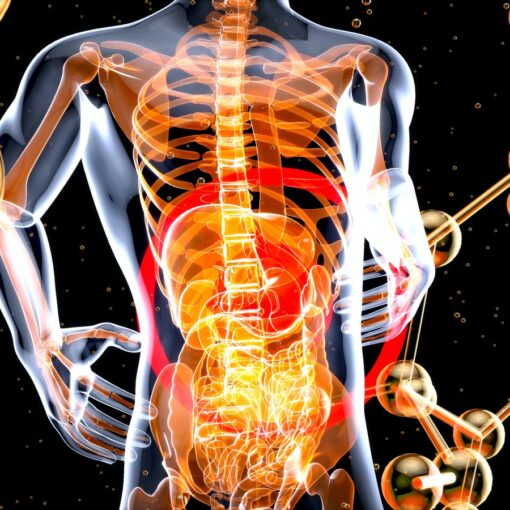Page Menu
Cryptosporidiosis is a parasite that is typically the result of an animal’s contact with human feces. The most common symptom, which may last from days to months, is watery diarrhea. There are also two other types of cryptosporidiosis: intestinal and extraintestinal. For those who have the intestinal type, fever and abdominal pain may occur.
Key Concepts and Top Takeaways
– Practice good hygiene: Wash hands thoroughly with soap and water, especially after using the bathroom.
– Avoid contaminated water: Drink only treated or bottled water in areas known for cryptosporidiosis.
– Be cautious with food: Eat well-cooked foods and avoid raw fruits and vegetables that may be contaminated.
– Maintain clean swimming habits: Avoid swimming in pools or lakes if you have diarrhea to prevent spreading the infection.
– Stay informed about outbreaks: Follow local health advisories regarding cryptosporidiosis cases in your area.
– Seek medical advice if symptomatic: Consult a healthcare provider if experiencing severe diarrhea, dehydration, or abdominal pain.
– Monitor hydration levels: Drink plenty of fluids to stay hydrated, especially during illness.
– Educate others about prevention: Share information on how to avoid cryptosporidiosis with family and friends.
– Consider immune health: Strengthen your immune system through a balanced diet and regular exercise.
– Keep surfaces clean: Disinfect frequently touched surfaces to reduce the risk of contamination at home.
Please Note: This post may contain affiliate links. If you click one of them, we may receive a commission at no extra cost to you. As an Amazon Associate, I earn from qualifying purchases.

Cryptosporidiosis, also known as crypto, is an intestinal infection caused by the parasite Cryptosporidium. Symptoms of crypto can include diarrhea, stomach cramps, nausea, fever, vomiting, and body aches. The main causes of crypto are human-to-human transmission of the parasite through fecal matter or contaminated food or water sources. There are some complications that can arise due to this disease, such as dehydration and malnutrition.
If you have recently become infected with Cryptosporidium, you may experience diarrhea followed by abdominal cramps, nausea, vomiting, fever, and dehydration. The severity of the infection is dependent on how long it takes to find out about the infection and what Cryptosporidium strains are in your body. Physicians diagnose cryptosporidiosis by examining stool samples for the parasite's oocysts.
This is a parasitic infection caused by Cryptosporidium and is found worldwide, but is most common in the developing world and those living in poverty. The disease usually has an incubation period of 2-10 days before symptoms start to appear with diarrhea, abdominal cramps, nausea, vomiting, and fever.
Cryptosporidiosis is a water-borne illness that can cause stomach cramps, fever, and diarrhea. It’s usually contracted from ingesting contaminated water or food. For those who are immunocompromised or have a weakened immune system, cryptosporidiosis can be life-threatening. In the U.S., infections of Cryptosporidium are most common in children under five years old and middle-aged adults.
This is an intestinal illness caused by Cryptosporidium parvum, a parasite passed through the stool of an infected person or animal. The infection can be spread through water or food that has come in contact with fecal matter. Once inside the host's body, the parasite reproduces and causes inflammation in the intestine.
Symptoms of Cryptosporidiosis
Symptoms can vary from individual to individual and range from mild to severe. The more serious symptoms of infection may include stomach pain, weight loss, nausea, diarrhea, and vomiting. If you have had any of these symptoms for more than a week, consult with your doctor.
Cryptosporidiosis is an unpleasant disease that can be transmitted through contact with contaminated water or food or by direct contact with an infected person. Risk factors include exposure to fecal matter, attending daycare, and traveling to areas of the world where Cryptosporidiosis is common. Although symptoms may not be apparent, they often include nausea, stomach pain, vomiting, diarrhea, fever, fatigue, weight loss, appetite loss, and changes in mental state.
Cryptosporidiosis is a life-threatening intestinal disease caused by the parasite Cryptosporidium. Symptoms of cryptosporidiosis are often hard to identify, but can include vomiting, diarrhea, cramps, fever, weight loss, and dehydration.
A person becomes infected with cryptosporidium when they drink water that has been contaminated with the cryptosporidium oocysts.
Symptoms include diarrhea, stomach cramps, vomiting, fever, weight loss, and fatigue. Cryptosporidiosis is difficult to diagnose because the symptoms are very similar to those suffered by people with other illnesses or infections. It can be contracted through drinking contaminated water or getting it from another infected person.
It is common for diarrhea to accompany other symptoms such as fever, nausea, and vomiting. However, there are times where diarrhea is the only symptom. This can be a problem because it's not always clear if this type of diarrhea is benign or a sign of a more serious illness. One such illness is cryptosporidiosis. Cryptosporidiosis is an intestinal parasite and enters the body through contaminated water or food, or contact with animal feces.
Inflammation is a symptom of cryptosporidiosis, an infectious disease spread by consumption of contaminated food or water. Symptoms include diarrhea, abdominal cramps, weight loss, fever, nausea, and vomiting. When people are affected by cryptosporidiosis they experience inflammation. Inflammation can also occur when the body is fighting against an infection or illness, which happens when the body's immune system responds to foreign invaders entering through the respiratory tract or gastrointestinal tract.
Fever is a key symptom of cryptosporidiosis. The Mayo Clinic defines this infection as “a diarrheal illness caused by protozoa that causes watery diarrhea and stomach upset.” While fever is typically seen in most cases of cryptosporidiosis, the severity of the fever varies. This is due to how many of the Cryptosporidium parasites reside in your body and where they are located.
Symptoms of this illness are diarrhea, cramping abdominal pain, nausea, vomiting, low-grade fever, and weight loss.
In some cases, abdominal pain is a symptom of cryptosporidiosis. Cryptosporidiosis is a parasitic infection of the intestines, and it is caused by a microscopic parasite called cryptosporidium. People can get cryptosporidium from contaminated food or water. It spreads quickly, and it is very hard to get rid of once a person has it. Symptoms may include stomach pain, diarrhea, vomiting, nausea, weight loss, and fever.
The infection can be acquired in one of three ways: through drinking contaminated water, swimming in contaminated water, and when someone who is infected vomits or has diarrhea, which contaminates nearby surfaces and objects. Symptoms of cryptosporidiosis typically appear within 5-14 days after exposure to the parasite but may take up to 3 weeks to show up.
Do you have stomach cramps? Do they come and go and/or feel like they're on the right side of your stomach? If so, you may be experiencing symptoms of cryptosporidiosis. Cryptosporidiosis is an infection caused by a parasite called Cryptosporidium. A new study published in the journal Clinical Infectious Diseases suggests that people who experience these symptoms should seek care from their healthcare provider because it can be treated with antiparasitic medication.
Nausea is a common side effect of many gastrointestinal illnesses, but it is also a symptom attributed to Cryptosporidiosis. This illness, caused by a parasite in the genus Cryptosporidium, has been spreading quickly in the United Kingdom and United States. Ingestion of contaminated food or water can lead to symptoms such as nausea and diarrhea. In some cases, the symptoms may be severe enough that they result in hospitalization.
Nausea is often one of the first symptoms of cryptosporidiosis, a parasite that lives in the intestines and other bodily fluids. Symptoms of Cryptosporidium before diarrhea might include abdominal pain, vomiting, nausea, fever, chills, fatigue, and muscle aches. These symptoms can be misdiagnosed or go unnoticed for weeks or months due to their vague nature.
Symptoms typically include nausea and vomiting that may last for days or weeks. It can be difficult to diagnose the condition because symptoms of diarrhea, stomach cramps and fever are common. In the United States, the Centers for Disease Control and Prevention estimate that as many as 2.4 million people are infected with Cryptosporidium each year, with an approximate annual cost of $1.4 billion. The most common symptoms of Cryptosporidium infection are diarrhea, stomach pain, nausea, vomiting, and body aches. The ailment is typically contracted through ingestion of contaminated water or food items.
One of the symptoms of Cryptosporidiosis is dehydration. Dehydration occurs when there is not enough water in the body to carry out bodily functions. Symptoms of dehydration are dizziness, headache, low blood pressure, dry mouth and throat, sunken eyes with dark circles underneath them.
Many people often think that dehydration is a side effect of the flu or some other illness. However, about thirty cases of confirmed cryptosporidiosis were reported in 2013, which is more than double the amount of the year before.
Causes of Cryptosporidiosis
Every year, more than 90,000 cases of Cryptosporidiosis are reported in the US alone. This disease is caused by a microscopic organism, Cryptosporidium parvum, which lives in the digestive tract of animals, including humans. Symptoms include diarrhea, abdominal cramps, nausea and vomiting – which can be severe enough to require hospitalization. There are many ways to get cryptosporidiosis.
Cryptosporidiosis is a parasitic waterborne illness that can be contracted by drinking contaminated water, swimming in a pool or pond, or swallowing recreational water from a natural source such as a river. The two most common ways to contract Cryptosporidiosis are through fecal contamination and recreational water sources. Approximately 15% of people who drink contaminated water will develop signs and symptoms of the disease.
Cryptosporidiosis is an illness caused by waterborne parasites called Cryptosporidium. People who come in contact with the parasite and ingest it can get sick and experience symptoms such as diarrhea, stomach cramps, or vomiting. The severity of the disease varies from person to person and typically lasts 1-2 weeks.
With contaminated water being piped into homes, businesses, and public areas all around the world, people are often unknowingly exposed to Cryptosporidiosis. The fecal flu or “crypto” is caused by a microscopic parasite found in the stool of infected mammals. The most common infection sources are through contact with the fecal matter of infected cattle, birds, horses, pigs, deer, sheep – you name it.
In 2007, the Centers for Disease Control and Prevention began monitoring people who had been exposed to swimming pools with a particular type of parasite called Cryptosporidium. In the past decade, the CDC has identified over 4,000 cases of cryptosporidiosis caused by contaminated water in public pools and hot tubs. Cryptosporidium is a parasite that can cause diarrhea and vomiting.
Cryptosporidiosis is a waterborne disease that can be transmitted from person to person or by contaminated recreational water. It has been found that swimming is the most common cause of cryptosporidiosis in children and adults because it often follows ingestion of contaminated recreational water. In the United States, there are about one million cases of cryptosporidiosis annually, with 1 out of 7 being children under 5 years old.
Cryptosporidiosis is a parasitic infection that affects the intestines. It can be caused by coming into contact with fecal matter, which can come from a variety of sources, including contaminated water and undercooked meats. We have highlighted some common signs and symptoms of cryptosporidiosis as well as ways to avoid contracting the infection.
Risk Factors for Cryptosporidiosis
Cryptosporidiosis is caused by the parasite Cryptosporidium that is found in the stool of infected animals or people. The most common symptoms are diarrhea, stomach cramps, nausea, vomiting, fever and weight loss. Chronic infection can lead to serious complications such as weight loss, anemia and malnutrition.
Cryptosporidiosis is a water-borne disease that thrives in humid and hot climates, and the most common symptom is diarrhea. There are many risk factors for contracting cryptosporidiosis: lack of access to clean drinking water, swimming in contaminated water, and living with someone who already has the disease. The WHO estimates that there are between 2.5 and 3 million cases of cryptosporidiosis annually worldwide.
Cryptosporidiosis, also known as Cryptosporidium, is a parasitic worm that can affect humans and animals. Cryptosporidium can travel through contact with infected fomites (objects that are capable of carrying infectious organisms), the fecal-oral route (in which food or drink is contaminated with someone else's feces) or indirectly through water contaminated by animal waste.
The illness can be caused by swimming in contaminated water or by drinking contaminated water. Cryptosporidium is an organism that is found throughout the world and can affect people of any age, ethnicity, or gender. The illness usually lasts from 2-4 weeks and while it’s curable, about 15% of people who contract this type of parasite need to be hospitalized.
Swimming in contaminated water is a risk factor for cryptosporidiosis, a disease caused by Cryptosporidium parasites. The parasite can be found in various types of water, including lakes, rivers, and ponds, as well as pools which are not properly chlorinated. It is recommended that you avoid all swim areas with suspicious looking or discolored water or swimming pools that are not routinely disinfected.
Complications From Cryptosporidiosis
Cryptosporidiosis is a water-borne parasitic disease caused by Cryptosporidium. The parasite can be transmitted through contact with fecal matter and drinking contaminated water. The problem of contamination has been worsened due to the necessity of drinking unfiltered water in disaster ridden areas, such as Puerto Rico, after Hurricane Maria. Furthermore, the number of fatalities from cryptosporidiosis has increased due to contaminated food sources coupled with lack of access to clean water in developing nations.
Cryptosporidiosis is a waterborne disease that can cause severe diarrhea when present in contaminated water. Cryptosporidiosis is caused by the Cryptosporidium parasite, which, when ingested live, reproduce in the small intestine. When this infectious disease is untreated it can lead to weight loss, malnutrition, dehydration, electrolyte imbalance, and even death. The most common source of infection in developed countries is recreational or drinking water due to inadequate treatment or distribution systems.
Cryptosporidiosis is a parasitic infection caused by the Cryptosporidium parasite. Symptoms include watery diarrhea, abdominal cramps, and vomiting. Some cases of cryptosporidiosis may only have mild or no symptoms. Complications can include dehydration, secondary infections from prolonged diarrhea, and even death in very young children and people with compromised immune systems.
Those who become infected with Cryptosporidium may not experience any symptoms until anywhere from 1 to 12 weeks after their initial infection. Symptoms of an infection include stomach cramps, watery diarrhea, nausea, fatigue, and fever. While the majority of people will only suffer from a few days of these symptoms, those with weakened immune systems can be more severely impacted by the illness.
As cryptosporidiosis is a water-borne disease caused by the parasite Cryptosporidium, it is possible that an infection with this parasite can result in secondary infections with other organisms. This type of complication can be dangerous since the body's immune system will not be able to fight against these types of infections. A complication of cryptosporidiosis is infection, which can lead to increased intestinal inflammation and increased risk for becoming infected with other bacterial infections.
In the developing world, it is estimated that as many as 1/3 of all malnourished children carry a parasite called Cryptosporidium. Cryptosporidium is a disease-causing parasite that lives in the intestines and can be transmitted from person to person through contact with fecal matter or from water contaminated with feces.
The disease is transmitted through contact with the feces of the infected person, which can happen when water contaminated with Cryptosporidium enters the body through the mouth. There are many symptoms associated with cryptosporidiosis including diarrhea, stomach cramps, nausea, vomiting, fever, or weight loss.
This infection causes anemia in many people and therefore, must be taken seriously. Symptoms of cryptosporidiosis include weight loss, abdominal pain, diarrhea, and vomiting. The disease can also lead to dehydration and metabolic acidosis. Examples of complications that may arise from cryptosporidiosis are anemia, pancreatitis, and kidney failure.
Malnutrition is a common complication for those infected with Cryptosporidiosis. Unlike some other parasitic diseases, Cryptosporidium is not spread through the air, but through water and soil contact. The more severe forms of malnutrition are caused by an inadequate intake of calories, protein, vitamins, or minerals. Long-term malnutrition may inhibit the body's ability to fight infection and lead to chronic illness.
Dehydration is a complication that can arise from Cryptosporidiosis. Cryptosporidiosis is caused by the parasite Cryptosporidium. The intestines are infected, which then damages the villi lining of the intestines. This inhibits absorption of fluids and nutrients, leading to dehydration. It's important for healthcare providers to measure the degree of dehydration, as any level will put them at risk for complications like heart arrhythmias and kidney failure.
The dangers posed by dehydration as a complication from cryptosporidiosis is often overlooked or not well-known. Cryptosporidiosis, also known as “crypto,” is a waterborne disease that affects animals and humans. Crypto can be contracted through contact with infected animals, coming into contact with contaminated water, using contaminated recreational water sources, and through the fecal route.
Electrolyte imbalance, a condition that causes fluid imbalances in the body, is a complication that arises from cryptosporidiosis, an infection caused by the parasite Cryptosporidium. The disease spreads through fecal matter, playing a role in contamination of food or water supplies. Symptoms may not occur for days after being infected, so it is difficult to know if you are currently carrying the parasite.
Cryptosporidiosis is a parasitic infection that is very common in the United States. Researchers have found that cryptosporidiosis can often develop into a serious complication. The more severe complications are caused by cryptosporidiosis itself, while the less severe complications are caused by other underlying conditions or diseases that are prevalent in developing countries. Those with weakened immune systems are at higher risk for developing this complication than the general population.
Treatment for Cryptosporidiosis
Cryptosporidium is a microscopic parasite found in human and animal feces. It infects humans by drinking or eating contaminated food or water. The disease typically lasts for two weeks and treatment consists of rest, fluids, and strong antibiotics.
Cryptosporidiosis is a gastrointestinal illness with symptoms including diarrhea, stomach pain, nausea, and vomiting. The infection can be manifested as a watery diarrhea or as a chronic and persistent diarrhea. Cryptosporidiosis is caused by the parasite Cryptosporidium parvum, which affects humans and animals.
Cryptosporidiosis is an infectious disease caused by the Cryptosporidium protozoa. Generally, it causes watery diarrhea with abdominal cramps, nausea, vomiting, fever, and weight loss. Symptoms generally last for a week or two. The infection can be dangerous to those with compromised immune systems. There are treatments available that include drinking plenty of fluids and taking antibiotics to clear up the intestinal tract.
Fevers, stomach cramps, diarrhea, and dehydration are symptoms of cryptosporidiosis. The symptoms are often mild but can pose a serious risk if not treated. A recent study found that the symptoms of cryptosporidiosis were improved by at least 50% when participants took four hours out of their day to rest.
Treatments for cryptosporidiosis are limited because the disease is usually short-lived and resolves without specific treatment in healthy individuals. However, rest may be helpful in people who have HIV or AIDS or other weakened immune systems.
One natural treatment for Cryptosporidiosis that is known to be effective in some cases is the intake of fluids. It is common for a person infected with Cryptosporidiosis to have a suppressed appetite and an increased thirst – which can lead to dehydration. The intake of fluids, including water and electrolytes, can help to alleviate the symptoms and reduce the severity of the infection.
Fluid replacement is the only statutory treatment for the condition.
To date, no cures or vaccines are available for Cryptosporidiosis. It is therefore critical that individuals with waterborne parasitic diseases drink fluids to maintain their hydration status and prevent dehydration.
Antibiotics may be used as a treatment for Cryptosporidiosis with a doctor's prescription, but they are not always effective. A doctor will diagnose the infection using a physical exam and lab tests. Antibiotics are an effective treatment for cryptosporidiosis. They work by killing the parasite or stopping its growth and reproduction. To ensure antibiotics are taken properly, they should be taken with food and water to avoid stomach upset.
Common Questions About Cryptosporidiosis
What is cryptosporidiosis caused by? Cryptosporidiosis is a parasitic infection caused by a single-celled organism called a protozoan. It is most commonly acquired through exposure to contaminated food and water or by having contact with an infected person. It can be found in animal feces, which makes the ingestion of contaminated material from animals, such as cows, sheep, pigs, and horses, a major source of infection. The most common symptoms include diarrhea and stomach cramps that last for 1 to 5 days.
What are the signs and symptoms of cryptosporidium? Cryptosporidiosis is a waterborne illness caused by the parasite cryptosporidium. Symptoms of the disease include diarrhea, stomach cramps, nausea, vomiting, fever, and body aches. Other symptoms may also occur such as sore throat, weight loss, muscle aches, diminished exercise tolerance, and dehydration. Many people with this illness do not have any symptoms at all. The symptoms are usually worse in children than adults.
Can cryptosporidiosis be cured? Cryptosporidiosis is a parasite that can be transmitted through water or food, and it has no known cure. The disease can also sometimes be passed from person to person. Symptoms of the illness include stomach cramps, nausea, diarrhea, fever, weight loss, and vomiting. Treatment options are limited and include antibiotics for some people and a diet to manage symptoms for others.
Cryptosporidiosis is an illness that is triggered by the parasite Cryptosporidium. Symptoms include diarrhea, vomiting, stomach pain, headache, fever, and weight loss. It can be spread through person-to-person contact, contaminated food or water sources, or recreational water facilities. If left untreated, it may lead to severe dehydration and death in people with compromised immune systems, such as those with HIV/AIDS.
How is cryptosporidiosis diagnosed? Cryptosporidiosis is a widespread and highly contagious parasitic infection that can be transmitted through contact with an infected person, contaminated food or water, or by handling infected animals. Symptoms of cryptosporidiosis are typically mild, but can include stomach pain, nausea, diarrhea, vomiting, fever, weight loss, muscle aches and fatigue. The diagnosis of cryptosporidiumosis requires taking a stool sample to examine for the parasite.
Who is most at risk for cryptosporidiosis? Cryptosporidiosis is a parasitic infection characterized by diarrhea and abdominal pain. It can be caused by the ingestion of food or water contaminated with infected stool, and is commonly found in human and animal feces. Cryptosporidiosis can be life-threatening for people with HIV/AIDS, chemotherapy recipients, and those who have other immune system problems because it can weaken their protection against other infections.
Infection from cryptosporidium can be acquired from swimming pools, lakes, rivers, and other bodies of water as well as from consuming contaminated food or water. It can also be passed from an infected person to another person through contact with feces. The infection is often difficult to diagnose because it often goes unnoticed, however symptoms may include fever, diarrhea, stomach cramps, nausea, vomiting, and a low red blood cell count.
How common is cryptosporidiosis? Cryptosporidiosis, a disease also known as “crypto,” is an infection caused by microscopic parasites. The infection is spread through contact with contaminated feces or eating food or drinking water that has been contaminated with the parasite. In the United States, the prevalence of crypto varies from 0.4% to 1.6% in individuals aged two years and older. One survey found an average of eight cases per 1,000 people in the population each year.
Cryptosporidiosis is a common parasitic infection worldwide. In the United States, about 748,000 people are infected each year with Cryptosporidium spp. Of those infected, about 28,00 have symptoms and 100-300 will develop a serious illness that requires hospitalization due to dehydration and electrolyte imbalances.
Is there a vaccine for cryptosporidiosis? Cryptosporidiosis is an infection caused by Cryptosporidium parasites, small single celled organisms that require no host to survive. The parasite can be found in fresh or saltwater and has been documented since the mid 1900s. Symptoms of cryptosporidiosis usually include watery diarrhea, stomach cramps, nausea, fever, and vomiting. There are no vaccines available for cryptosporidiosis in humans or animals.
Is cryptosporidiosis a zoonotic disease? Cryptosporidiosis is a parasitic disease caused by Cryptosporidium which is a type of protozoan. Infection with the parasite is transmitted person-to-person or by ingestion of contaminated food or water. A new study has found that not only is cryptosporidiosis an intestinal human disease, but it can also be contracted from animals as well, especially those who have been in contact with infected humans.
What antibiotics treat Cryptosporidium? Cryptosporidium is a waterborne microorganism that can be transmitted through contact with contaminated water and infected animals. Symptoms of Cryptosporidium include nausea, diarrhea, stomach cramps, and vomiting. Antibiotics used to treat Cryptosporidium include: Flagyl (metronidazole), Tindamax (tinidazole), and Zithromax (azithromycin).
How does Cryptosporidium cause diarrhea? Cryptosporidium is a parasite that can cause severe diarrhea, which may lead to dehydration. It is spread through animal stool, people accidentally ingesting contaminated food or water, and contact with contaminated surfaces. The parasite damages the small intestine, destroying the cells lining the intestine and impairs the production of electrolytes like potassium or sodium. The host's immune system reacts to the infection by releasing a flood of white blood cells in an attempt to fight off the infection.
Where is cryptosporidiosis most commonly found in the world? Cryptosporidiosis is a common diarrheal disease, and it is most commonly found in environments such as childcare facilities, day cares, and hospitals. It can also be found in recreational water facilities such as swimming pools, rivers, lakes, etc. The disease is caused by the Cryptosporidium parvum parasite and spreads through food and water contaminated with human feces. Severe cases of this infection can lead to death, even after the individual has recovered from gastroenteritis.
What animals carry Cryptosporidium? Cryptosporidium is an intestinal parasite that can infect both humans and animals. It can be found all over the world, but some species of animal are more likely to carry it than others. Cats, ferrets, dogs, cattle, sheep, goats, pigs, and other ruminants are all common carriers of Cryptosporidium.
What is the mortality rate of cryptosporidiosis? Cryptosporidiosis is a waterborne parasitic disease caused by the protozoan parasite Cryptosporidium which can live in just about any surface that comes into contact with water. According to the Center for Disease Control and Prevention, the mortality rate of cryptosporidiosis is 3.8%.
How can you prevent cryptosporidiosis? Cryptosporidium is a parasite that can be contracted through drinking or eating contaminated water and comes with symptoms such as nausea, vomiting, and diarrhea. There are many ways to prevent cryptosporidiosis, such as thoroughly cooking food and not swimming in fresh water when there's been a sewage spill. In addition, it is important to always wash fruits and vegetables before eating them.
In conclusion, cryptosporidiosis does not pose a major health risk; however, it is more prevalent in some populations due to exposure. Therefore, one should be aware of the symptoms and the potential complications that can result. If you exhibit any of these symptoms or are at risk, contact your physician for treatment options.
Cryptosporidiosis is not typically a major health risk; however, it is more prevalent in some populations due to exposure.

Kevin Collier is a seasoned health writer at Otchut.com, specializing in over-the-counter medicines, common medical ailments, and general health topics. With a background in healthcare and a passion for making medical information accessible, Kevin aims to empower readers with knowledge to make informed health decisions. When he's not writing, he enjoys researching the latest in health trends and advocating for wellness in his community.





